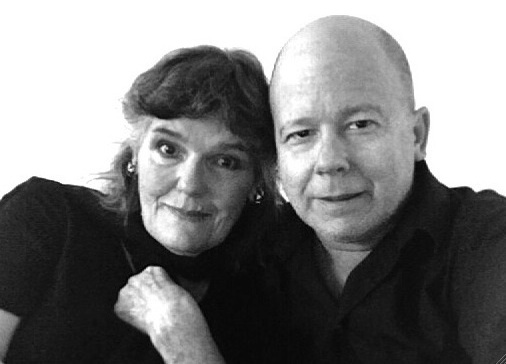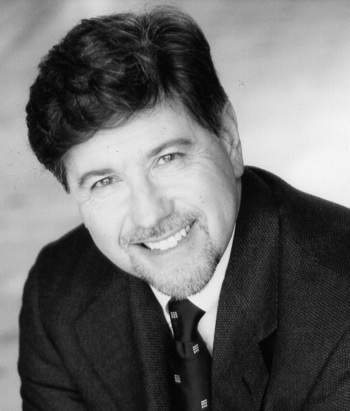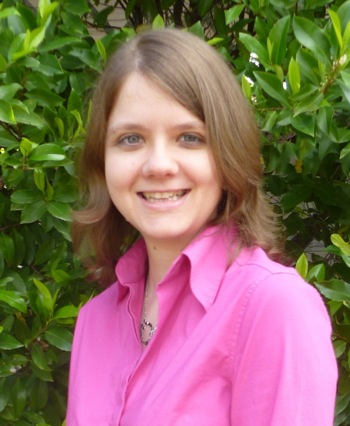Vocal works of charm and diversity
Fresh Voices XIV, the fourteenth annual festival of new works sponsored by Goat Hall Productions, was held last Friday and Saturday, July 11 – 12, in the Community Music Center in San Francisco’s Mission district. Encouraging short works of contemporary opera and new music theater by local composers, this year’s festival was titled “Taken,” a provocative subject that was used very differently by six composers.
Goat Hall Productions and its alter ego, SF Cabaret Opera, are the brainchildren of Artistic Director Harriet March Page and Music Director Mark Alburger, and between those two directors – and real-life couple – they cover every aspect of musical performance. Additionally, Alburger is a gifted composer, and his own Abducted by Aliens received its premiere here, setting the tone for “Taken.”
The Festival opened with Helena Michelson’s 2004 It Isn’t Music That, a delicate setting of early surrealist poems by Paul Eluard. The elusive text was performed by soprano Megan Conroy with high intervals that melted into each other, complementing restrained strings and a mournful French horn.
 Then John Bilotta premiered the second scene of Rosetta’s Stone, his opera-in-progress that explores a music teacher’s decline into Alzheimer’s. Bilotta, whose Quantum Mechanic stole the show for its piquant humor at a previous Fresh Voices, was equally startling in this scene, where compassion vied with a chilling descent into age and illness, nicely portrayed and sung by baritone Wayne Wong.
Then John Bilotta premiered the second scene of Rosetta’s Stone, his opera-in-progress that explores a music teacher’s decline into Alzheimer’s. Bilotta, whose Quantum Mechanic stole the show for its piquant humor at a previous Fresh Voices, was equally startling in this scene, where compassion vied with a chilling descent into age and illness, nicely portrayed and sung by baritone Wayne Wong.
Keisuke Nakagoshi accompanied on piano with child-like almost-arpeggios, repeating notes unexpectedly like a game whose rules were just made up.
“Where is that score?” sang Wong, as Harriet Page riffled through a heap of papers. Page, cast as Wong’s Hippocampus, starts and stops, a shuffling adjunct to the music teacher. We soon began to intuit that something is wrong when a cello student appears for her lesson. Cass Panuska sang the soprano line and mimicked her performance on cello, as real-life cellist Monica Scott played onstage next to her, a nice bracketing of the two pairs of selves.
“Is my elbow in the right position?”
“Don’t worry about your elbows. Keep your wrists at 90 degrees and the elbows will follow,” sang Wong after a long dither. “Memories… cast ahead to understand…” added mezzo Page confusingly. The vocal lines were long and slow, dragging against the piano arpeggios.
Becoming aware of his condition impelled a real empathy, and we were relieved when the lesson is successful and the student leaves. “My hell and heaven wait,” sang a distracted hippocampus. This was a particularly suggestive work.
Finishing the first half was something truly unexpected, Richard Bagwell’s To Hell with Heroes, a political satire set in Hell, where “Dubya” and Bin Ladin trade war stories and curses amid surprising camaraderie. On the heels of Bilotta’s depths, Heroes was particularly accessible.
“I don’t suppose there’s a preacher around here?” asked baritone Nathan Marken as Dubya, looking around Hell. “Oh, yes,” replied bass baritone David Parr as Bin Laden. “They’re all here.”
 After intermission, the second half mirrored the first, beginning with Alden Jenks’ setting of three Charles Simic poems, beautifully read and then sung by soprano Indre Viskontas. Simic’s text was as plain and sharply evocative as Eluard’s was limpidly surreal.
After intermission, the second half mirrored the first, beginning with Alden Jenks’ setting of three Charles Simic poems, beautifully read and then sung by soprano Indre Viskontas. Simic’s text was as plain and sharply evocative as Eluard’s was limpidly surreal.
 Then, in Yvonne Freckmann’s Close Encounter of the Hillbilly Kind, we were treated to a hilarious encounter between a young woman and a would-be amorous hillbilly as both waited for a bus. Soprano Cass Panuska was endearing and tenor Ross Halper was scarily believable in this work of pop rhythms and sincere vocals that blurred the boundary between German Romanticism and American musical theater.
Then, in Yvonne Freckmann’s Close Encounter of the Hillbilly Kind, we were treated to a hilarious encounter between a young woman and a would-be amorous hillbilly as both waited for a bus. Soprano Cass Panuska was endearing and tenor Ross Halper was scarily believable in this work of pop rhythms and sincere vocals that blurred the boundary between German Romanticism and American musical theater.
Last, and a real treat, was Alburger’s Abducted by Aliens. The composer and Page sang cryptic text fragments against an electronic score dense with layers. Above them played a video of UFO sightings, captivating the audience as surely as if we had also been abducted.
“Houston, we have a bogey at ten o’clock,” sang Mark with urgency.
The ten short movements, scripted from Wikipedia’s long entry on UFOs, ranged from Plutarch, an early Roman historian, to a Gemini space flight. The musical inspirations likewise ran the gamut from Italian Renaissance to Crumb and from Mozart to Mahler.
In a later phone interview, Alburger described his unique process of composing, how he took musical sources and then altered keys, pitches, structures and rhythms and layered these “tropes” in a collage. In Abducted, he used the structure of Olivier Messiaen’s Turangalila, chosen because of its sliding “science-fiction-y” sound (with the use of the early electronic Ondes Martinot.). He took notes from each measure, “turning them into clusters and then adding extreme rhythms, like a pop song, but more concrete.”
“In the movement inspired by George Crumb’s Black Angels there are three layers. The bottom is a 1950s-era bass line, but altered and cast in minor. The middle layer has tritones from Saint-Saen’s Danse Macabre, and on top is bits of the “Dies Irae” movement from Crumb.”
But despite – or because of – this process, the whole meshed in a compelling work.
—Adam Broner
Photo top of Mark Alburger and Harriet March Page, by permission; lower, photos of composers John Bilotta and Yvonne Freckmann.
